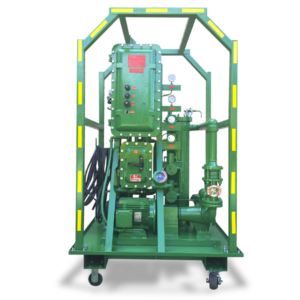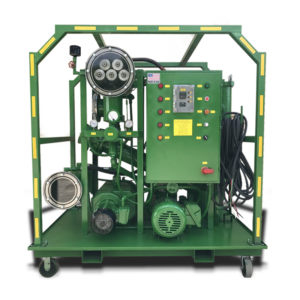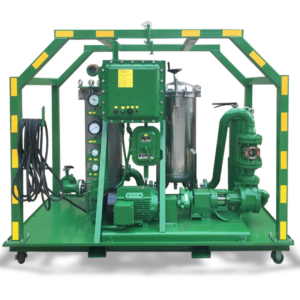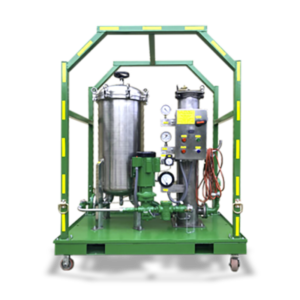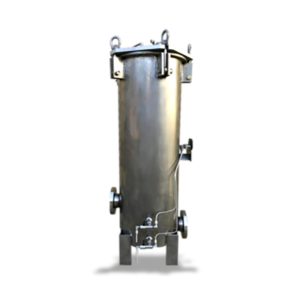Oil Filtration Rental Equipment
Our Rental Fleet
Below are the standard oil filtration rental equipment that we have for rent. Custom oil filtration machines are also available. Call 832-214-4953 or email [email protected] to rent a system or find out additional information on any of our products or custom filtration services.
Frequently Asked Questions (FAQ’s)
Below are answers to some frequently asked questions about our oil filtration rental equipment. For pricing, availability and additional questions, call 832-214-4953 or email [email protected].
Why should I clean contaminates from my oil and lubricants?
There are a number of reasons why filtration systems are a great investment for preventative maintenance.
According to Caterpillar, the number one cause of hydraulic system failure is often just dirt and contamination, but these seemingly small problems usually lead to much bigger problems for the company. In fact, according to the bearings division of TRW, “contamination is the number one cause of bearing damage that leads to premature removal.”
Case Corporation later highlighted that “one thing holds true about hydraulic systems: They must be kept clean— spotlessly clean— in order to achieve the productivity they are capable of.”
To add to the importance of system maintenance, Massachusetts Institute of Technology stated that “six to seven percent of the Gross National Product is required just to repair the damage caused by mechanical wear,” which occurs as a result of contamination.
Oklahoma State University also concluded that when fluid is maintained 10 times cleaner, hydraulic pump life can be extended by up to 50 times. Cleaner machinery ultimately leads to higher profit for the company. Our number one goal is to help increase profitability for our customers, and our high-quality system maintenance will help them achieve this.
These are the driving forces behind why Hydrocarbon Filtration maintains strong synergy for finding solutions to our customer’s fluid cleanliness problems.
What types of oil filtration machines can I rent?
Hydrocarbon Filtration has a wide range of filtration systems available for customers looking to rent, including Vacuum Dehydrators, Particulate Removal Systems, Varnish Removal Systems, Cartridge Filter Vessels, Bag Filter Housings, Fuel Coalescers, and Transformer Oil Purifiers.
What fluids does your oil filtration rental equipment remove contaminates from?
Our rental filtration equipment is designed to remove contaminants from fluids like oils, fuels, chemicals, solvents, machine and engine coolants, and even water. This contamination is not only responsible for a large amount of machine wear and downtime to your machines, but can be detrimental to many plant processes.
How do you remove contaminates?
Our machines have the ability to perform a number of processes when it comes to getting rid of these contaminants– including filtration, vacuum dehydration, ion exchange, and fuel coalescing processes. Our modern Micro-glass Filtration technology, for example, enables you to reach low fluid cleanliness targets quicker and easier than ever before.
Some applications require us to do things like remove free, emulsified and dissolved water from hydrocarbons like oil, or even separate lighter hydrocarbons from heavier hydrocarbons, which can be achieved through the process of vacuum dehydration.
Other methods include removing dissolved contamination in fluids through ion exchange resins. These resins use electrostatic forces to remove the dissolved products from the hydrocarbons, chemicals, and water solutions. We also use coalescer systems which use electrostatic force to remove the heavier fluids from the lighter fluids. This liquid to liquid separation process is also known as enhanced gravity separation, and it is used frequently in other fuel filtration processes.
What primary markets do you serve?
Our primary customers include power generation and power plants, petroleum and chemical plants (coal, natural gas, fuel, nuclear, and wind-powered), offshore oil platforms, oil rigs, marine companies with large and small ships, barges and push boats, industrial facilities with hydraulic systems, injection molding machines, mining companies with multiple gearboxes, lube oil systems, hydraulic systems, haul truck applications, and tank farms with fuels, oils, solvents, coolants and many other fluids that require a clean, uncontaminated product.
A lot of our filtration equipment is also used by companies that provide oil and chemical cleaning services where high-velocity hot oil and chemical flushes are needed.
Where do you perform work or ship oil filtration rental equipment?
Our filtration equipment is housed in warehouses throughout the country (Texas, Arkansas, and Minnesota), allowing us to have a rental system ready to meet your needs within a few hours.
What kinds of ratings (NEMA/Class/Div) do these skids have?
Many of our filtration systems are NEMA 4 Electrical Compliant and can be operated outdoors in most weather conditions. We also specialize in NEMA 7 Explosion Proof systems that meet Class 1, Division 2, and Groups C&D electrical specifications. Our filtration systems meet fluid cleanliness guidelines for both ISO Cleanliness codes and NAS Fluid Cleanliness codes.
How do these systems get to my site?
For ease of logistics and mobility, most of our systems are skid mounted with protective cages and equipped with lifting lugs and forklift slots on all four sides. Our systems can easily be moved by standard forklifts, overhead cranes, flatbed trucks, cargo containers, and trailers. They range in size from 2 feet deep by 2 feet wide by 4 feet tall and 200 pounds, to 6 feet deep by 10 feet wide by 7 feet tall, and weighing up to 6,500 pounds.
What kind of power requirements do these have?
Most systems are 460 V/3 Phase Power, and require anything between 20 to 100 amps of power supply, depending on the size and load of the system.

